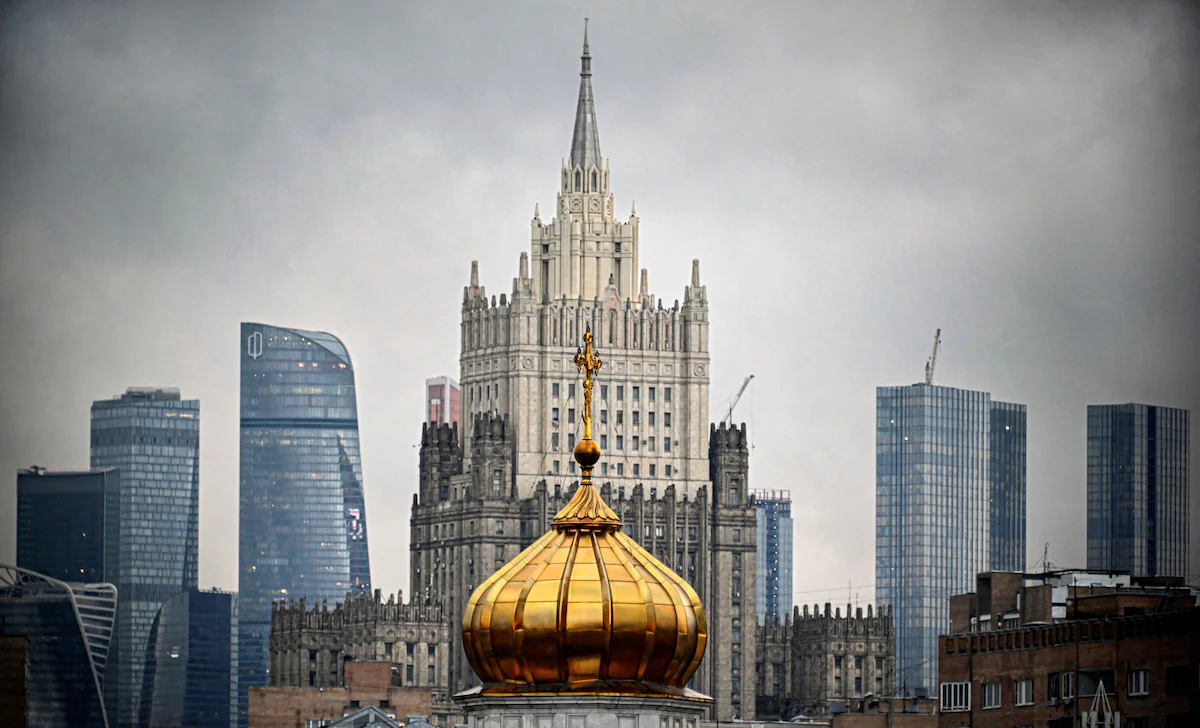The U.S. Embassy in Moscow firmly denied Russia’s claims that the United States played a role in Ukraine’s operations in the Russian region of Kursk. These accusations came after Russian officials summoned Chargé d’Affaires Stephanie Holmes to protest what they called “provocative actions” by American journalists who reported from Ukrainian-controlled Kursk.
According to the Russian Foreign Ministry, American journalists had entered Kursk following the region’s capture by Ukrainian forces. The ministry further claimed that an American private military company was also operating in the area.
In response, the U.S. Embassy emphasized that news organizations make independent decisions regarding their operations and personnel. The statement from the embassy clarified, “The U.S. government has no involvement,” highlighting that American citizens are strongly advised not to travel to Russia due to the country’s current Travel Advisory at Level 4: Do Not Travel.
The embassy also underscored that it had no role in planning or preparing the operation in Kursk. They directed questions regarding military activities to Ukrainian authorities.
Earlier, the Russian Foreign Ministry had expressed concern that the American journalists entered the region illegally “for propaganda coverage” of Ukrainian actions. The ministry hinted at potential legal consequences for Americans allegedly connected to these activities but did not disclose any specific names or media outlets involved.
On Tuesday, the European Federation of Journalists (EFJ) condemned Russia’s threats to prosecute Italian journalists who reported on the Ukrainian offensive in Kursk. The EFJ labeled these threats as attempts at censorship, aimed at blocking the public from understanding the reality of ongoing military operations.
Multiple American media outlets, including The Washington Post, have recently published reports from Ukrainian-held areas in Kursk. The Post described their visit as an effort to document the extent of Ukrainian control and observe the challenges faced by remaining Russian civilians. A spokesperson for the publication stated, “We take pride in our coverage of the Ukraine-Russia conflict and remain committed to reporting all aspects of this evolving situation.”
In addition to accusing journalists, the Russian Foreign Ministry also alleged that an American private military company was involved in Ukraine’s operations in Kursk, participating in what they described as an “invasion of Russian territory.” Although the ministry didn’t specify the company, they warned that foreign mercenaries or military specialists entering Russia without authorization would be considered legitimate targets.
Russia’s ongoing claims about American involvement in the conflict were reinforced when Foreign Ministry spokesperson Maria Zakharova accused Western journalists of “whitewashing” Ukrainian actions and manipulating public opinion to maintain Western support for Ukraine. She reiterated that only journalists with proper Russian accreditation and visas are allowed to report from Kursk.
These developments come on the heels of Russia’s recent release of American journalist Evan Gershkovich, who was accused of espionage, in a high-profile prisoner swap. Since Russia began occupying parts of Ukraine, its journalists, military bloggers, and officials have frequently visited these areas. Despite illegal claims to annex territories like Donetsk, Luhansk, Kherson, and Zaporizhzhia, Ukraine continues to contest control.
In June, President Vladimir Putin demanded that Ukraine surrender the remaining territories as a condition for peace talks. However, following Ukraine’s advances in Kursk, Putin and other Russian officials have ruled out negotiations while Ukrainian forces remain active on Russian soil.
Also Read:
- Kursk Region Under Siege: Ukrainian Forces Allegedly Attack Russian Territory, Putin Confirms
- Illinois Woman Sentenced to Two Years for Illegal Arms Exports to Russia
The situation escalated further when Zakharova labeled journalists reporting from Kursk as “traitors” for allegedly contributing to Ukrainian propaganda. This aggressive stance highlights Russia’s ongoing efforts to suppress unfavorable narratives as the conflict drags on.






